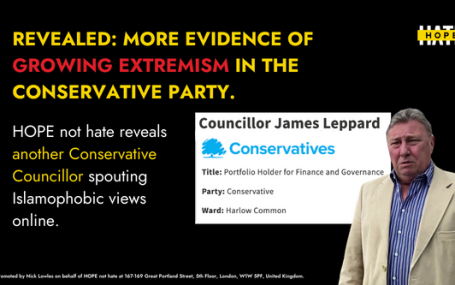HOPE not hate uses cookies to collect information and give you a more personalised experience on our site. You can find more information in our privacy policy. To agree to this, please click accept.
The Far Right In America, written by Professor Cas Mudde of the University of Georgia and published by Routledge Focus, concisely and helpfully explores the rapidly expanding influence of far-right ideology in the United States which, despite its danger, has unfortunately remained largely unknown or not understood by the general public.
The book begins by offering readers general definitions of far-right terminology, and explains the distinctions between the subsets of the far right. A section on the history of right-wing extremist movements in the U.S. serves to highlight the consistent presence of organized fringe elements in American society, a point which Mudde reinforces as a means of explaining the current situation in the U.S. Mudde rightly points out that many Americans have difficulty viewing political extremism in American terms, preferring instead to focus on well-known Europeans such as Adolf Hitler.
According to Mudde, this is likely because there exists a worrying lack of academic research on the subject of far-right groups in the U.S. This has the effect of severely restricting public understanding of America’s own history of far-right extremism and makes it more difficult for the public to recognize future threats to liberal democracy arising in their own country. He points out that even large numbers of American political scientists who study politics professionally focus almost exclusively on Europe for insight into the far right.
To explain the American side of far-right extremism, the book moves chronologically through recent political events. This helps readers to understand the progression of right-wing movements, from the militia movements of the 1990s to the Tea Party and finally to the rise of Trump. Because it is a compendium of Mudde’s writings, dating back to 2012, the book highlights the shifting political situation in the U.S. from the first-hand perspective of the author. In this way, it helps to lay out the sequence of events that ultimately resulted in Donald Trump’s election. This format also enables readers to gain insight into the author’s own changing viewpoint. The progression begins with the assumption that Trump would be incapable of winning even the primary, moves to the belief that Clinton would easily win, and eventually turns to one of uncertainty. The portions written following the election contain explanations as to how its outcome was possible and offer insightful analysis of political attitudes within the GOP and the U.S. at large. These analyses are backed with a combination of historical comparisons, polling data, and the author’s personal experiences.
The book attempts to make sense of Trump’s ideological position while also dispelling oft-repeated claims that he is simply a right-wing populist. In order to do so, the book provides definitions of the tenets of traditional populism and contrasts them with Trump’s own words. Rather than being easily categorizable, he presents Trump as an amalgam of varied (and often contradictory) ideas. Mudde suggests Trump’s rise and eventual victory is the natural progression of decades of rightward movement on the part of the GOP, illustrated by the discriminatory policy preferences of many Republican Presidential contenders. This extremist movement rightwards stands in stark contrast to the GOP leadership, which Mudde categorizes as ineffectual and dramatically out of step with grassroots elements of the party.
As a whole The Far Right In America serves the important purposes of offering serious definitions of terms which are often casually used and have just entered general discourse (i.e. populist) and of connecting present-day issues to their historical precedents. The book is both brief and accessible, providing clear definitions of most of its terminology, and helpfully concludes by offering suggested sources for further study. This allows for a broad audience that can include everyone from casual followers of political events to those who simply want a fresh perspective on this ever-relevant issue. In a time of political uncertainty, where extremist attitudes have strode onto the national stage, books such as this are of vital importance.

Cllr James Leppard expressed Islamophobic sentiments and endorsed abuse of Sadiq Khan HOPE not hate can reveal further evidence of the growing problem of extremism…